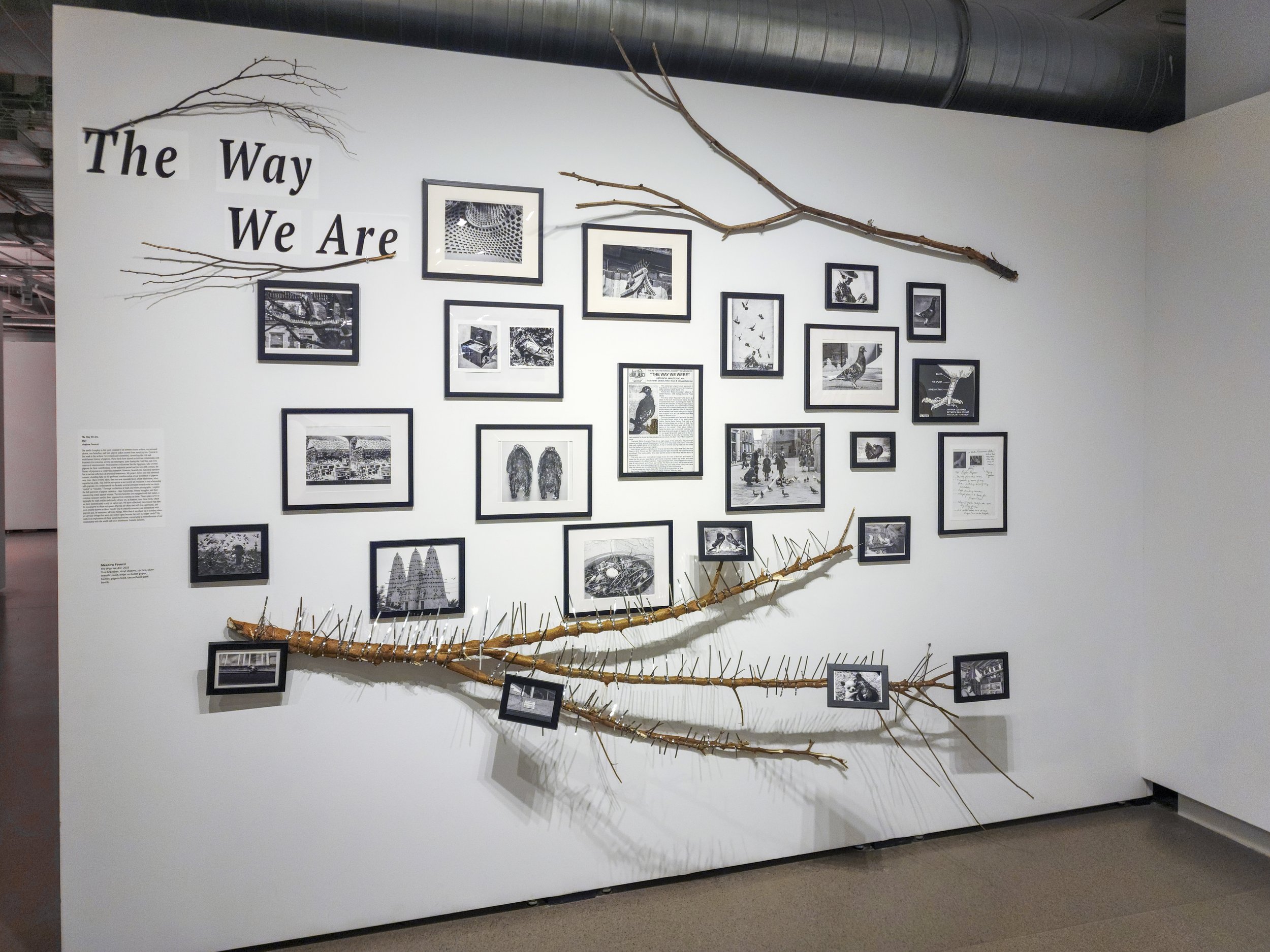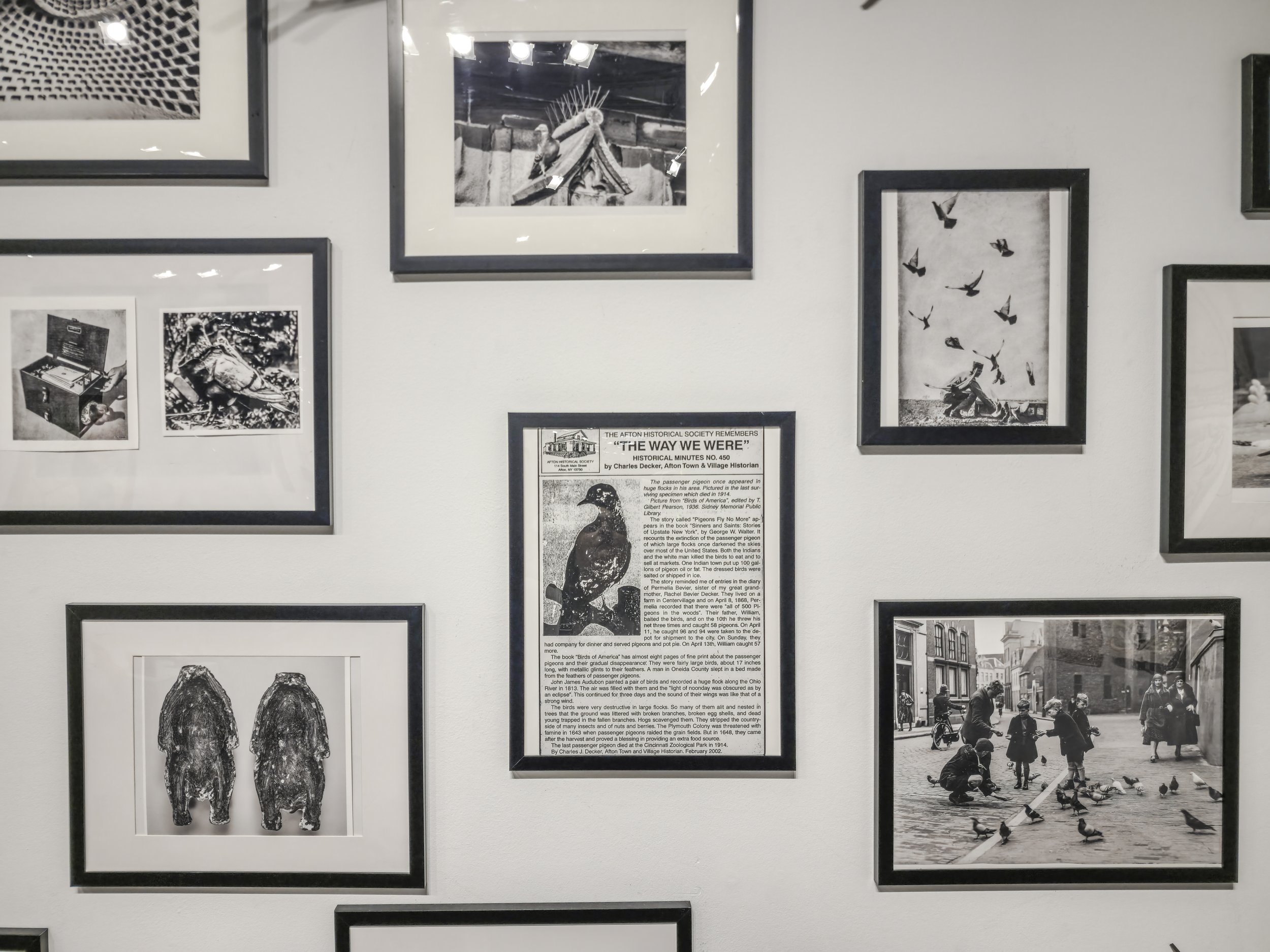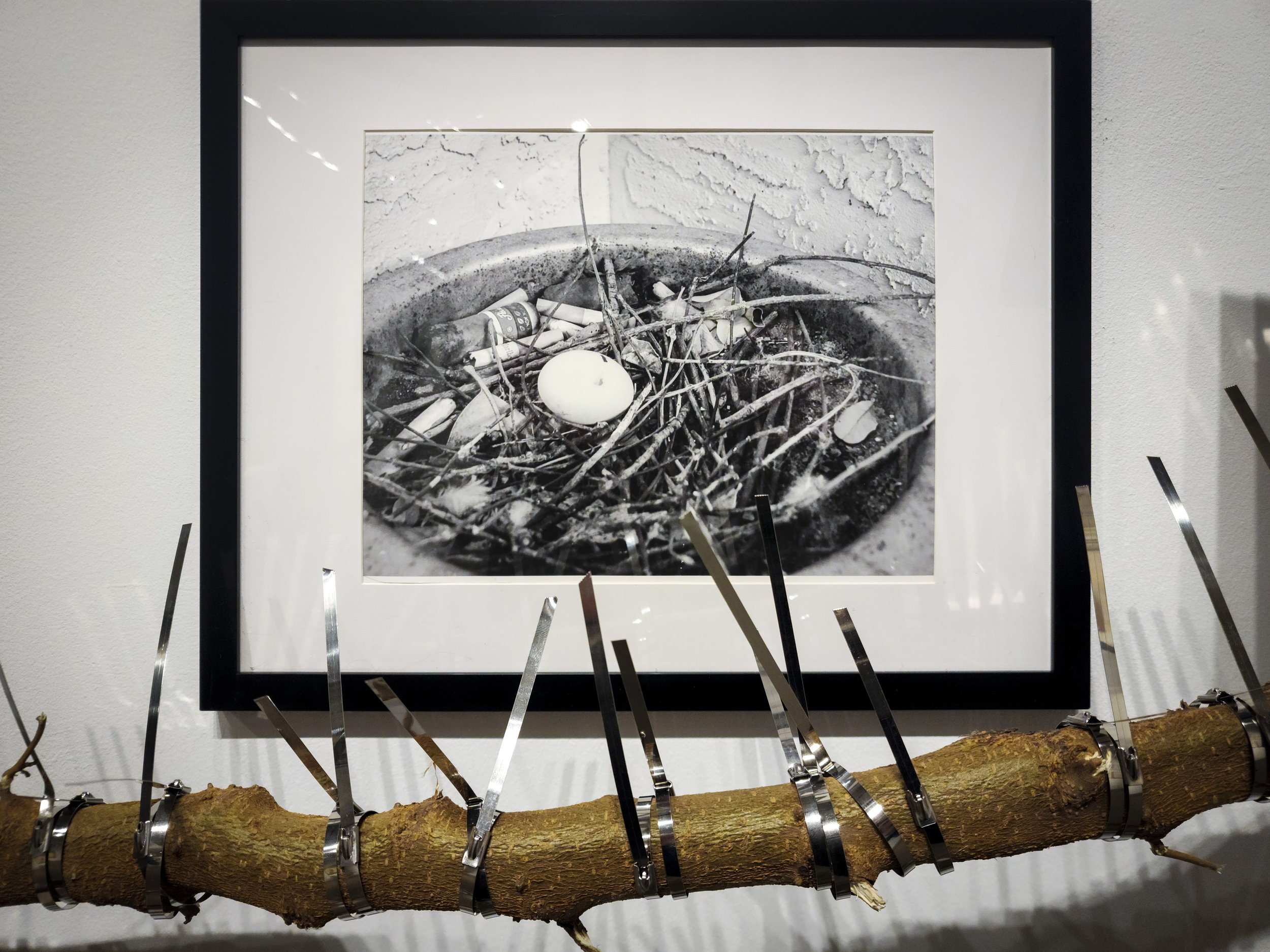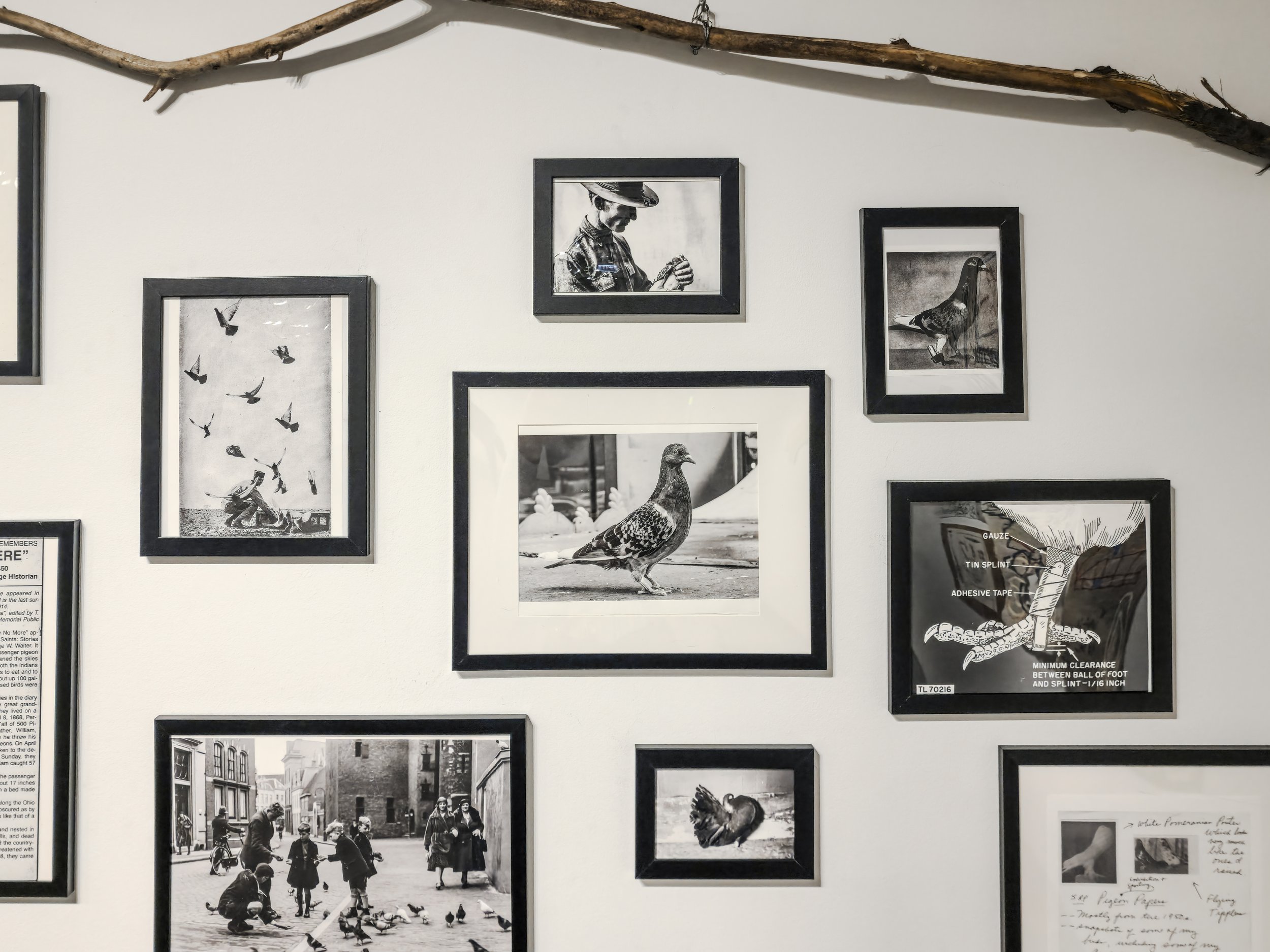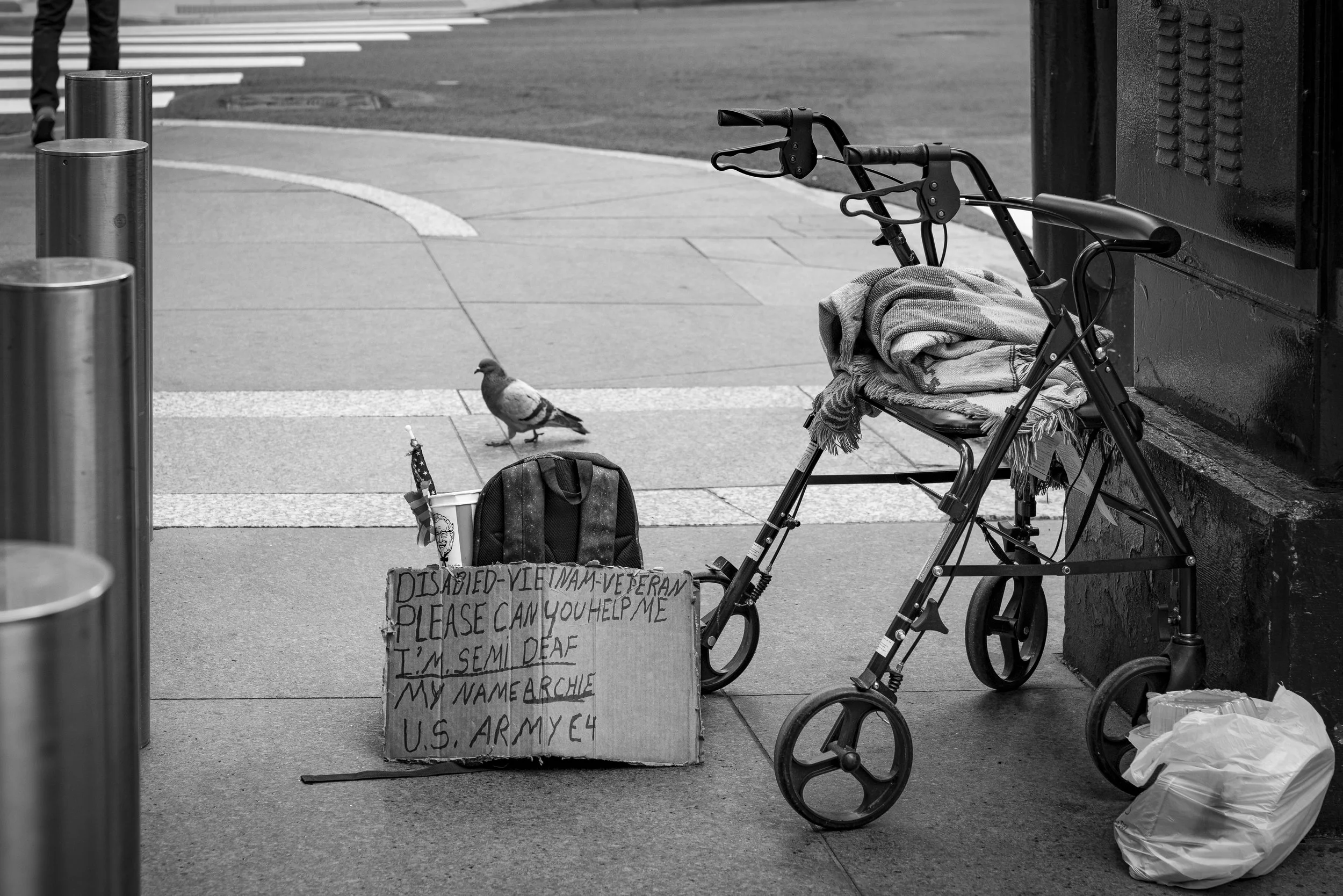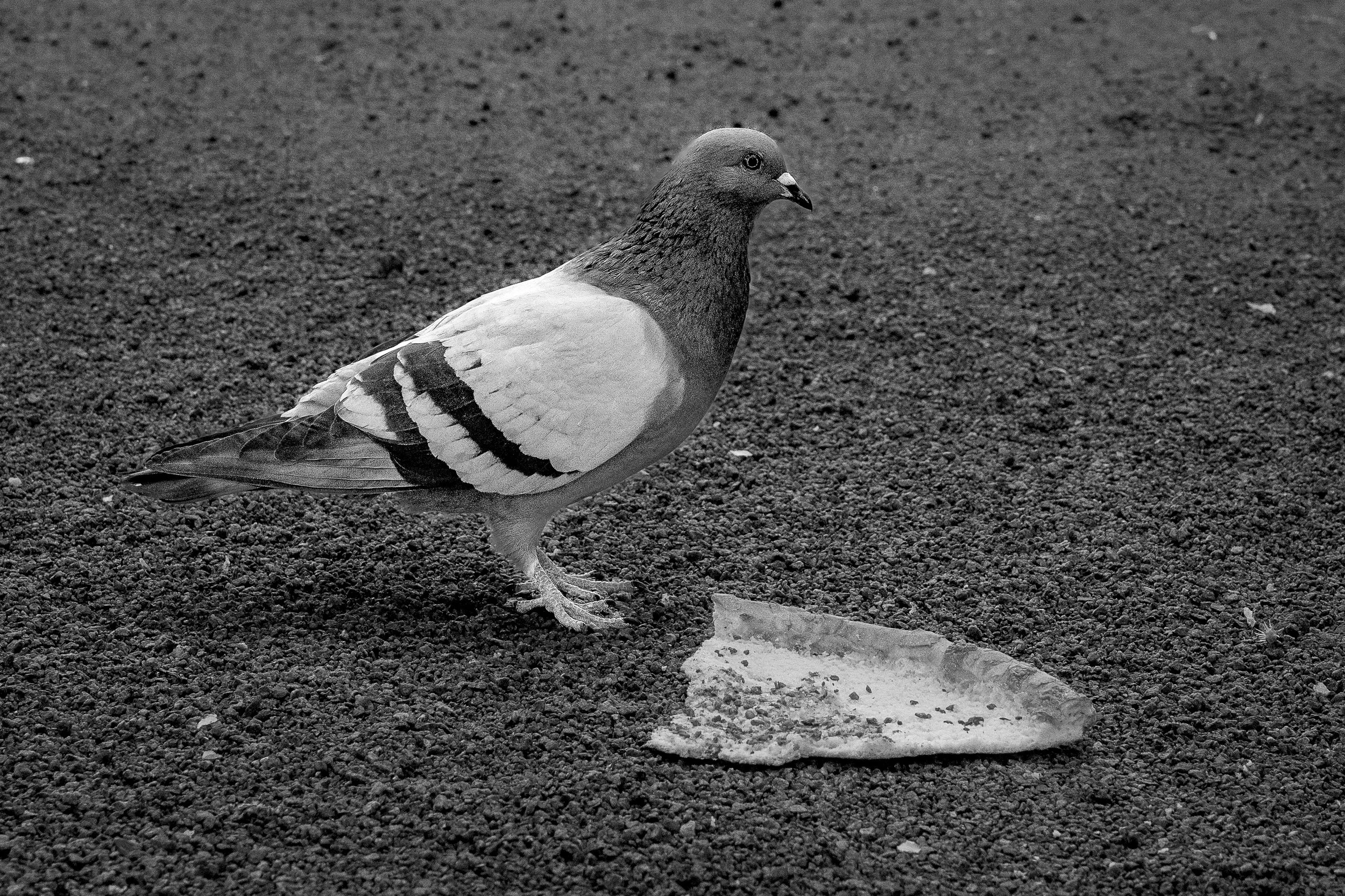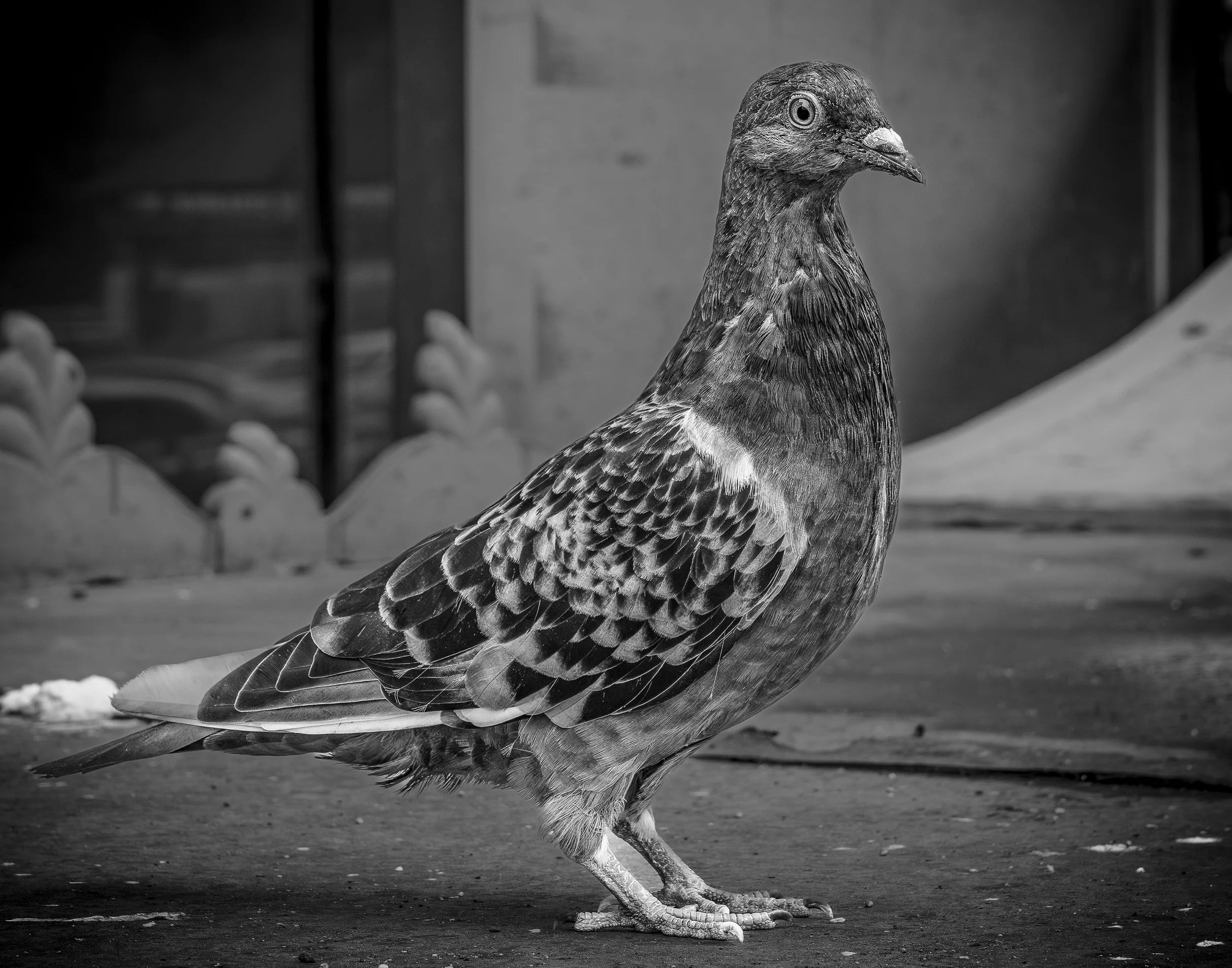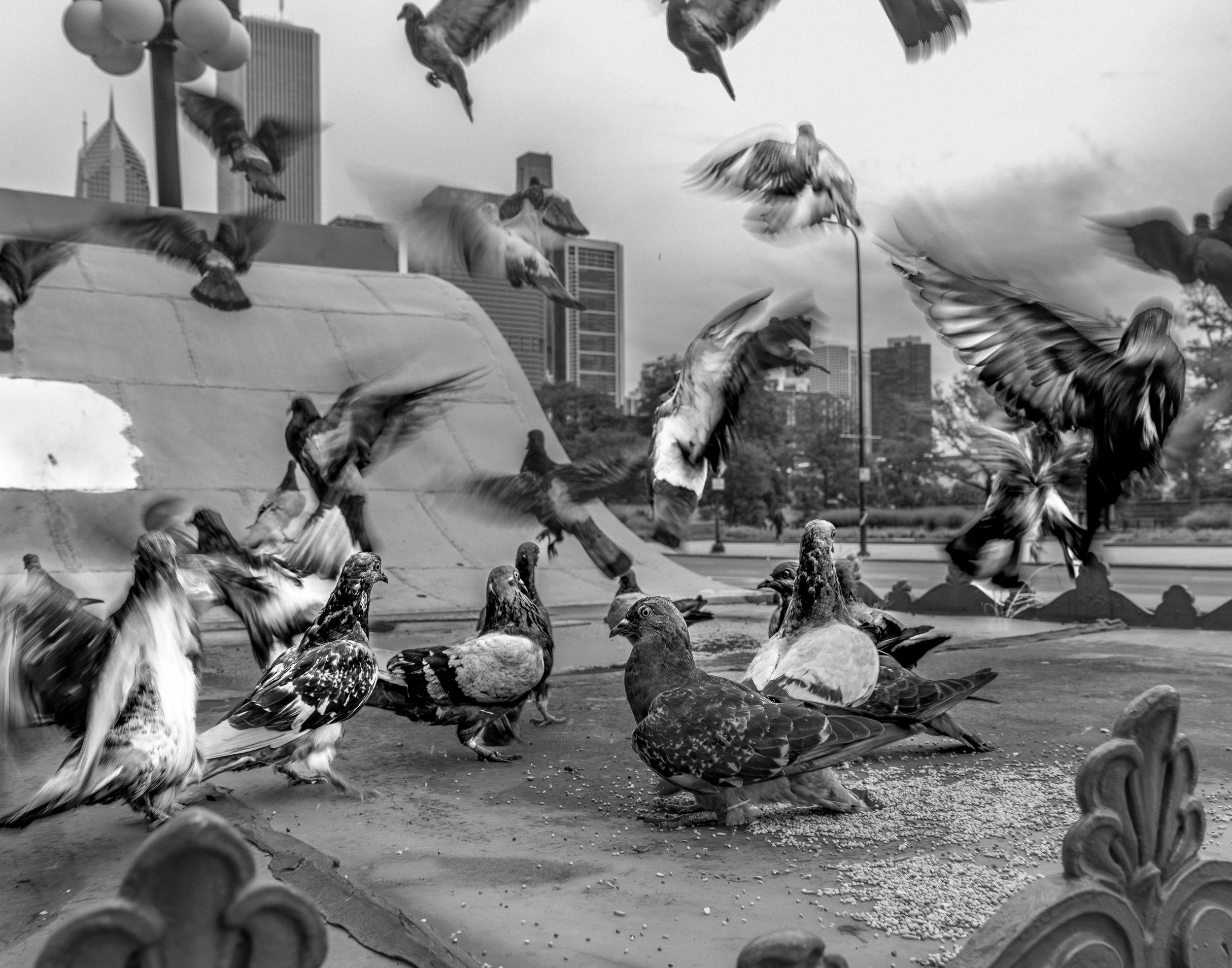The Way We Are.
The media I employ in this piece consists of an internet source archive, my personal photos, tree branches, and faux pigeon spikes created from metal zip ties. Central to this work is the archive I've meticulously assembled, chronicling the rich and multifaceted history of pigeons. These birds have shared an intricate relationship with humanity for centuries, serving as messengers, spies during the Cold War, and even sources of entertainment. From ancient civilizations like the Egyptians, who revered pigeons for their contributions, to the industrial period and the late 20th century, the history of pigeons is a compelling narrative. However, beneath this historical narrative lies a societal reflection of profound importance. My project delves into this historical context, shedding light on the profound transformation of our perception of pigeons over time. Once revered allies, they are now misunderstood urban inhabitants, often regarded as pests. This shift in perception is not merely an evolution in our relationship with pigeons; it's a reflection of our broader societal attitudes towards what we deem “useful” or “valuable.” Through a collection of black and white photographs, I explore the full spectrum of pigeon existence – their beginnings, beauty, struggles, and their unwavering stand against erasure. The tree branches are equipped with bird spikes, a common measure used to deter pigeons from roosting on them. These spikes serve to highlight the stark reality and cruelty of how we, as humans, treat these birds, which we have domesticated to rely on us for care. We have collectively determined that they do not deserve to share our spaces. Pigeons are often met with fear, aggression, and even objects thrown at them. I invite you to critically examine your interactions with pigeons and, by extension, all living beings. What does it say about us as a society when we devalue beings that were once relied upon because they are no longer 'useful'? My work is an exploration of these social implications, encouraging a reconsideration of our relationship with the world and all its inhabitants, humans included.
